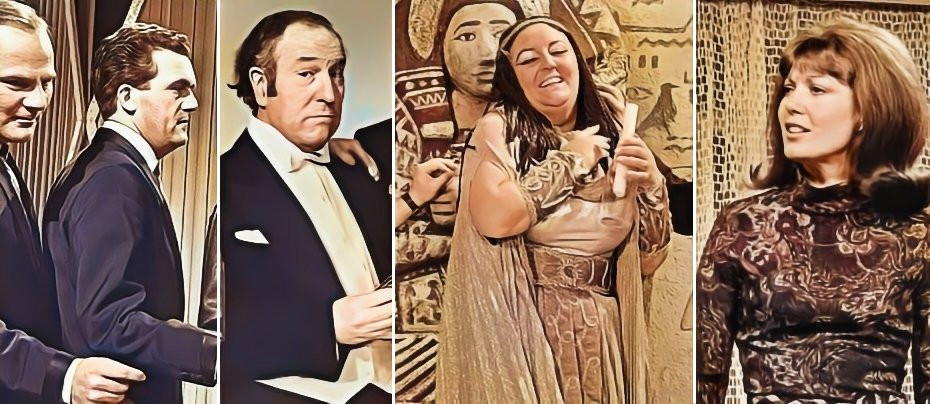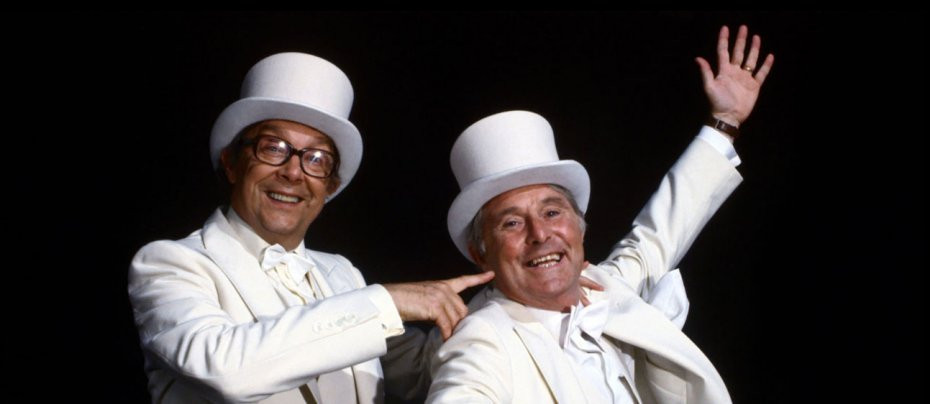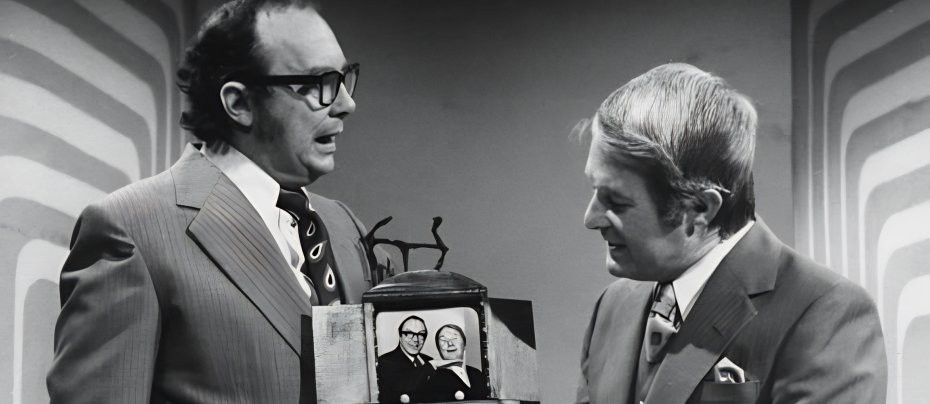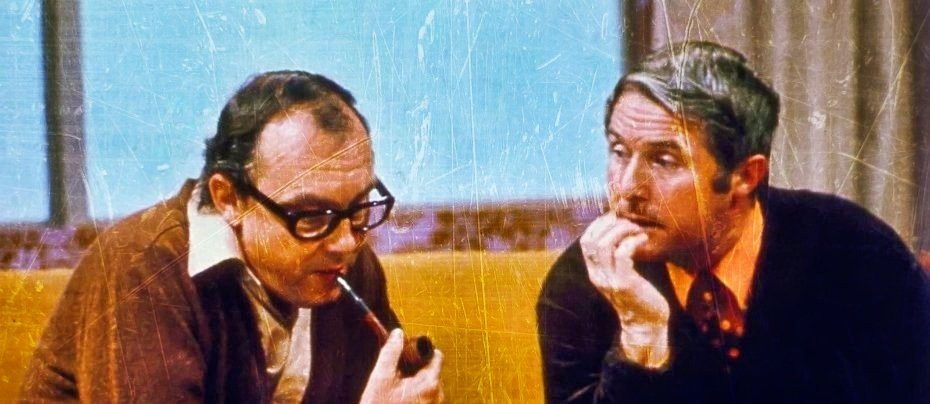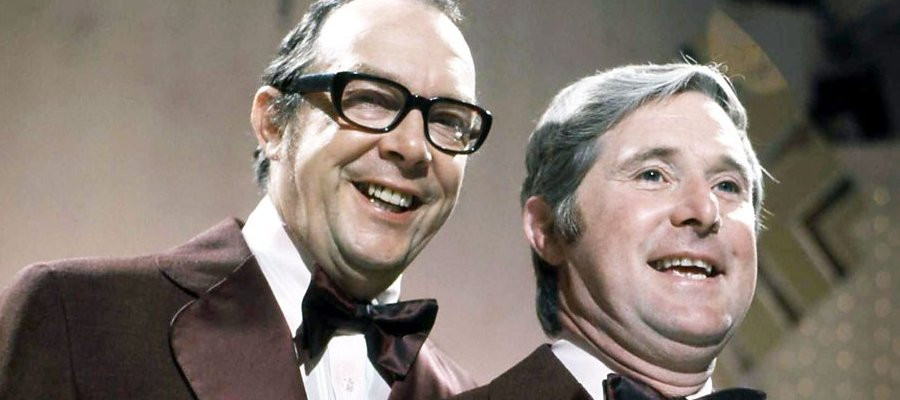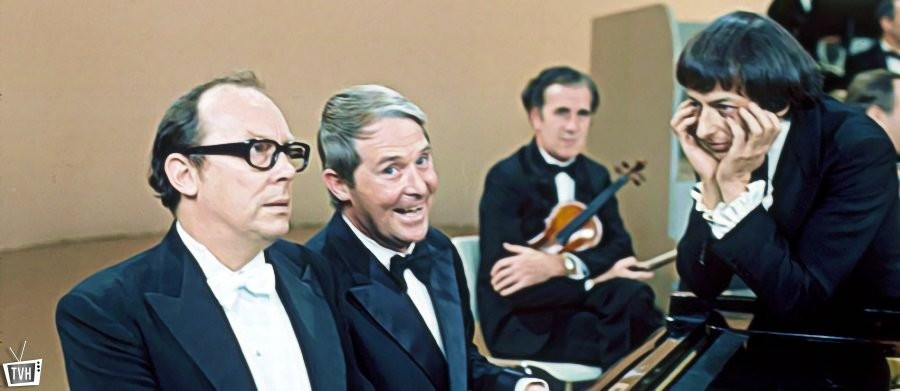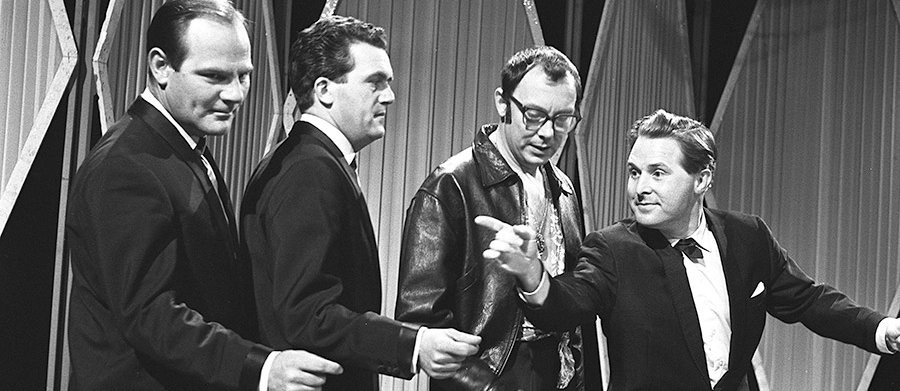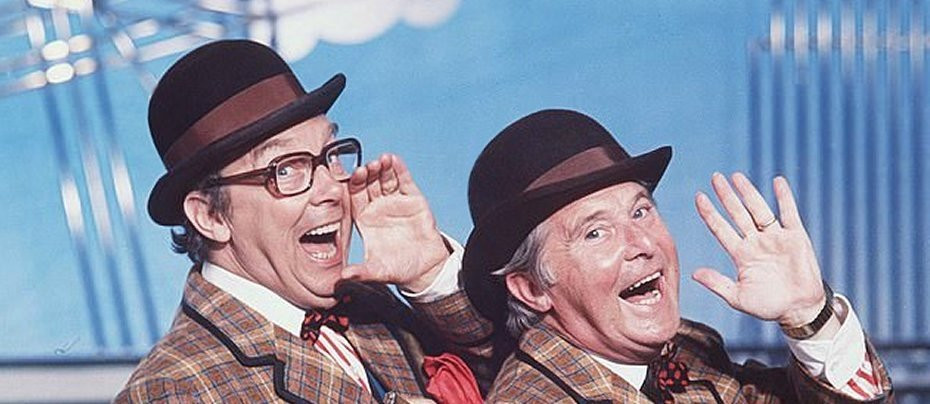
Morecambe and Wise at Thames
Since Eric Morecambe’s death in 1984, television companies have fallen over themselves to make documentaries about the British love affair with undoubtedly the most popular television duo in history (sorry Ant and Dec, but it’s true). We’ve had highlight shows, video and DVD compilations, guest interviews, lost episodes, biopic specials and multiple stage show tributes. Until now however, the boys’ later years at Thames have been largely ignored, something thankfully now corrected with the release of Morecambe and Wise: At Thames.
Eric and Ernie’s pulling power remains as high as it ever was. The media attention to the recently shown ‘lost’ episode from 1970 is testament to that fact, so it’s surprising that throughout all of time that has gone by since the abrupt end of the act, most of the Thames programmes have been unseen since their original broadcast.
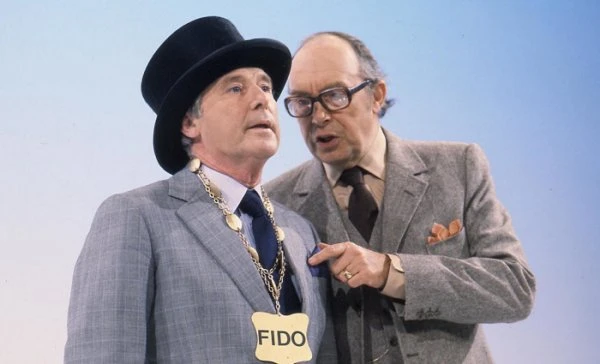
When ‘the boys’ jumped ship from the BBC it was a decision that deeply upset the corporation, especially Bill Cotton. ITV offered more money and the option of a movie. After the three rank films of the 1960s had failed to win favour with critics, Ernie in particular still fancied one more crack at the big screen. The pair’s swansong at Auntie Beeb was their 1977 Christmas Special, largely credited as having garnered around 28 million viewers, a feat unthinkable today, even if the claim is sometimes questioned.
The jump to commercial television undoubtedly saw a decline in the viewing figures of their show, but to dismiss the Thames years as a failure with one fell swoop is unkind…the switch did coincide with a downturn in their fortunes but a number of factors came together to work against them, not least Eric’s health as they did not do a full series for Thames for more than three years after the end of their BBC stay.
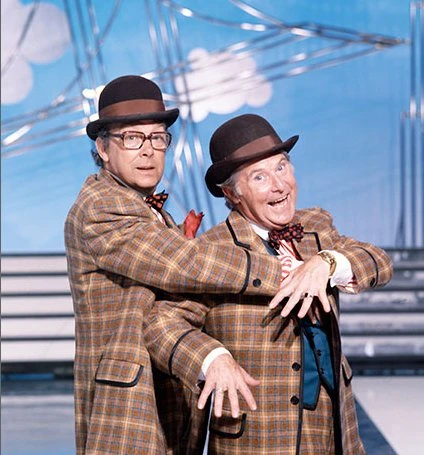
As the name suggests, Network’s DVD release contains everything the boys did for Thames, aside from the television movie, Night Train to Murder. The first few specials and the first series were released in 2008, but the remainder of the shows have not been commercially available until now. It’s perhaps for that reason, along with the many books suggesting that the Thames years were a disappointment that viewing them carries a certain trepidation. Have they been left unreleased for their lower quality, or have the critics been unfair?
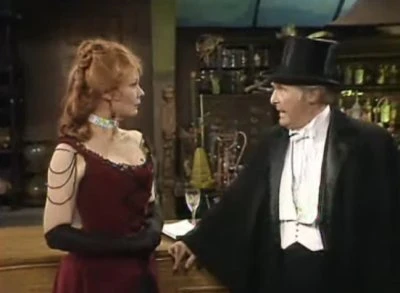
Initially, the fear is that these shows were best left alone. When the boys left the BBC, the dream team that propelled them to stardom – Eddie Braben, Ernest Maxim and John Ammonds – all remained at the BBC. Despite suggestions that they were under contract, the reality was that they simply didn’t want to leave…at least initially. It’s perhaps because of these absences that the first series and specials struggle to find their way. Some of the routines seem over produced, relying on editing as much as good writing, and maybe there is too much effort in creating funny sketches as opposed to relying on the home life, musical numbers and Ernie’s plays that worked so well to that point.
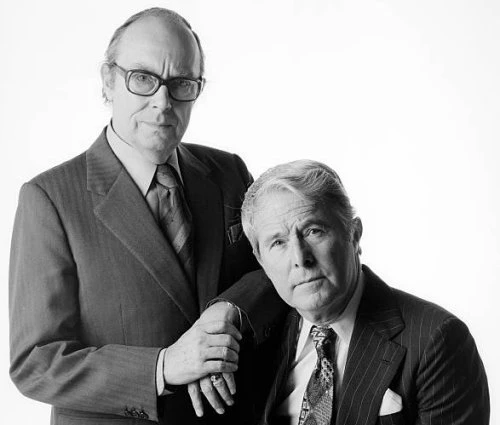
By the second series however the boys had gained some traction, surely not coincidental with the fact that both Ammonds and most importantly Braben were now back on board. There is a slightly different feel to the shows at Thames. Routines often refer to the age of Eric and Ernie and the stage of their careers. In one show’s opening, Eric appears initially on his own, referring to the absence of, ‘…the elderly gentleman that assists me,’ while there are a number of routines about the pair being past it or washed up. Indeed in one show Ernie boots Eric out of the flat as his rigid ways are holding him back, sending him on his way with his paper bag, cap and mackintosh.
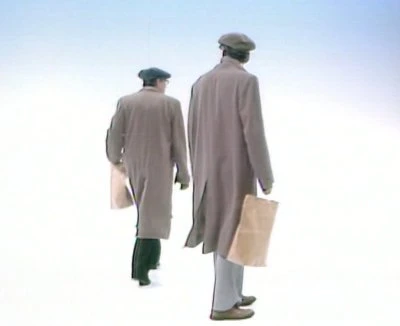
That trio of possessions is one of the most remembered parts of the Thames years. After dabbling with ways to end the show that differed from those at the BBC, the writers struck upon the idea of Eric going for his bus and Ernie seemingly heading for his chauffeur-driven car. Once Eric has exited, Ernie calls back a guest star to duet on Bring Me Sunshine, halfway through which Eric appears at the back of the stage in that full length mac’, cap and scarf, with his ropey paper bag in tow. It’s a comical gag that became a greatly entertaining feature. Eric of course begins to question Ernie’s actions and starts to take guest stars with him for the bus, so we are treated to some of the guests wandering in the distance in their own mac’ and cloth cap. Few things unite opinions more than Eric and Ernie, so when you get to see Sir Ralph Richardson and then World Snooker champion Steve Davis both doing the Groucho dance at the end of the 1982 Christmas show, you know that the boys were still a top of the bill attraction.
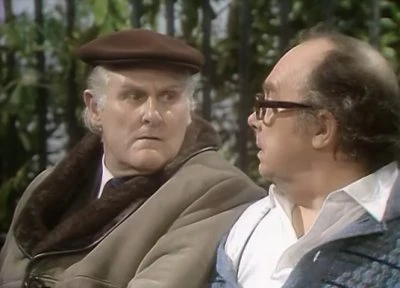
The most fondly remembered moments of Eric and Ernie’s BBC shows tend to be those involving a guest star and it’s no surprise that their Thames years are at their best when time and script allows them to be free flowing and high paced with a guest. Robert Hardy’s appearance in series two is a joy as he comes to the flat to discuss how Ernie could become a serious actor, but is happier to be distracted by Eric’s music hall comedy routines. It takes up almost half the show but stands equal with any flat routine at their BBC peak, perhaps the reason why Hardy makes two more guest appearances in the following years.
Perhaps the major drawback of the Thames days is the simple timing of the shows. At the BBC, the 45-50 minute format allowed a better flow. Guest stars would often be brought out in front of the tabs being convinced, or occasionally blackmailed, into appearing in one of the plays wot Ernie wrote later in the show. However, with only 24 minutes to play with, this was almost never the case at Thames. Musical numbers still appear and for the first three series, guests remain frequent, but they are normally one or the other, with no patter in front of the curtains. Indeed in the second year it is not until the final show of the series that one of Ernie’s plays is brought to life, Joanna Lumley starring in The Barratts of Wimpole Street. It’s a shame that the plays are often referenced than acted out as the format works just as well as at the BBC, Eric’s Robert Browning attempting to curry favour with Elizabeth Barrett’s father with such poetic ditties as, ‘There was a young lady from Reading, who saw something move in the bedding…’
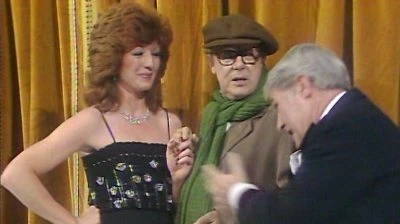
Series two and three are where the Thames Years are at their best. When Sir Ralph Richardson is brought to the flat by Robert Hardy, his befuddled, dithering performance only adds to the fun of the scene as he introduces himself and asks, ‘Is Mr Wise at home?’, to which Eric replies, ‘I’ll have to look in the hoover bag.’
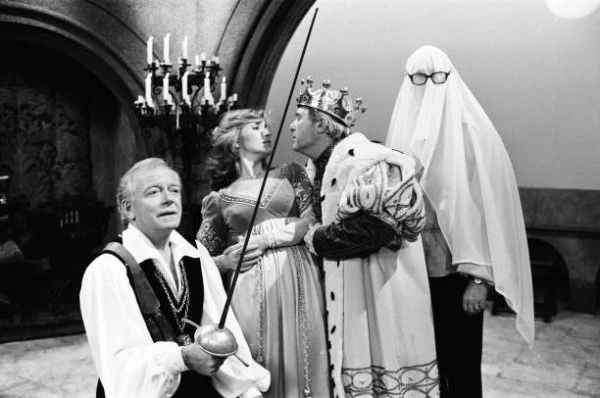
By series four, the guest spots had largely dried up and the boys began rehashing a good deal of their material. By this time, Ammonds had left the scene as well, which along with Eric’s waning enthusiasm is perhaps why the pace of the final series and the very last show, the Christmas edition of 1983, is that much slower. There is still merit in repeating some of the old routines. In that final edition, the Christmas gift of the dubious watch to Ernie is brought back from the 1970s, as is the subsequent routine of the counter melody that Eric cannot grasp, this time with Peter Skellern playing the role that Elton John originally enjoyed. There is also another appearance for the Harpenden Hot Shots backing Cabaret, Tony Monopoly taking the unamused lead where Frankie Vaughan originally performed.
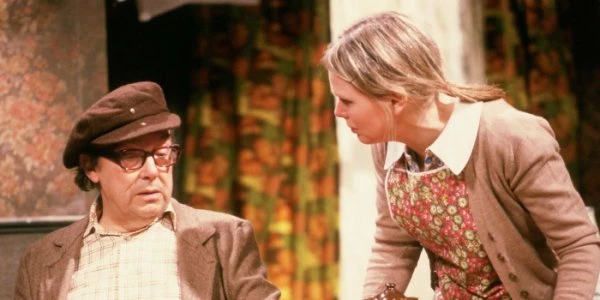
With so many years having passed since transmission it’s a shame that the Morecambe and Wise: Thames Years being released didn’t get treated to the same fanfare as the discovery of the recent lost episode from the BBC years. For many fans, this will be the first time in their lifetime that they have seen these shows, so a six-disc set of largely unseen Morecambe and Wise is a joy. Fears that the series would harm the memory are quickly banished and there are ample times when one could be forgiven for thinking that one was still watching BBC episodes, especially during the many fun scenes in the boys’ flat.
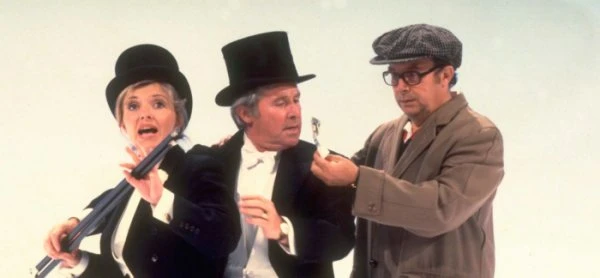
At the end of the final show, the last word before the Thames logo brings an unbeknown end to Morecambe and Wise is spoken by Ernie who after a song and dance routine where he and Eric get stuck together, he says to Eric, ‘Wave goodbye,’ and it’s difficult not to feel somewhat moved knowing how things would pan out so soon after that final bow. Thankfully, there was one more opportunity to insult Des after the credits rolled. After 40 years in hiding, diluted Morecambe and Wise is still better than the best of most of what came after them, and it’s a joy to have it all available once more.
Related Articles:
https://televisionheaven.co.uk/tvh-plus/three-of-a-kind
https://televisionheaven.co.uk/biographies/morecambe-and-wise
https://televisionheaven.co.uk/reviews/the-morecambe-and-wise-show
https://televisionheaven.co.uk/articles/eric-and-ernie-s-top-10-guests
https://televisionheaven.co.uk/biographies/sid-and-dick
Review by Brian Slade:
Born and raised in Dorset, Brian Slade turned his back on a twenty-five-year career in IT in order to satisfy his writing passions. After success with magazine articles and smaller biographical pieces, he published his first full-length work, `Simon Cadell: The Authorised Biography'.
Brian is a devoted fan of the comedy stars of yesteryear, citing Eric Morecambe, Ken Dodd, Harpo Marx and Dudley Moore amongst his personal favourites. He was drawn to the story of Simon Cadell through not only `Hi-de-hi!' but also `Life Without George', a programme he identified with having grown up in the Thatcher era.
Published on December 29th, 2021. Written by Brian Slade for Television Heaven.


